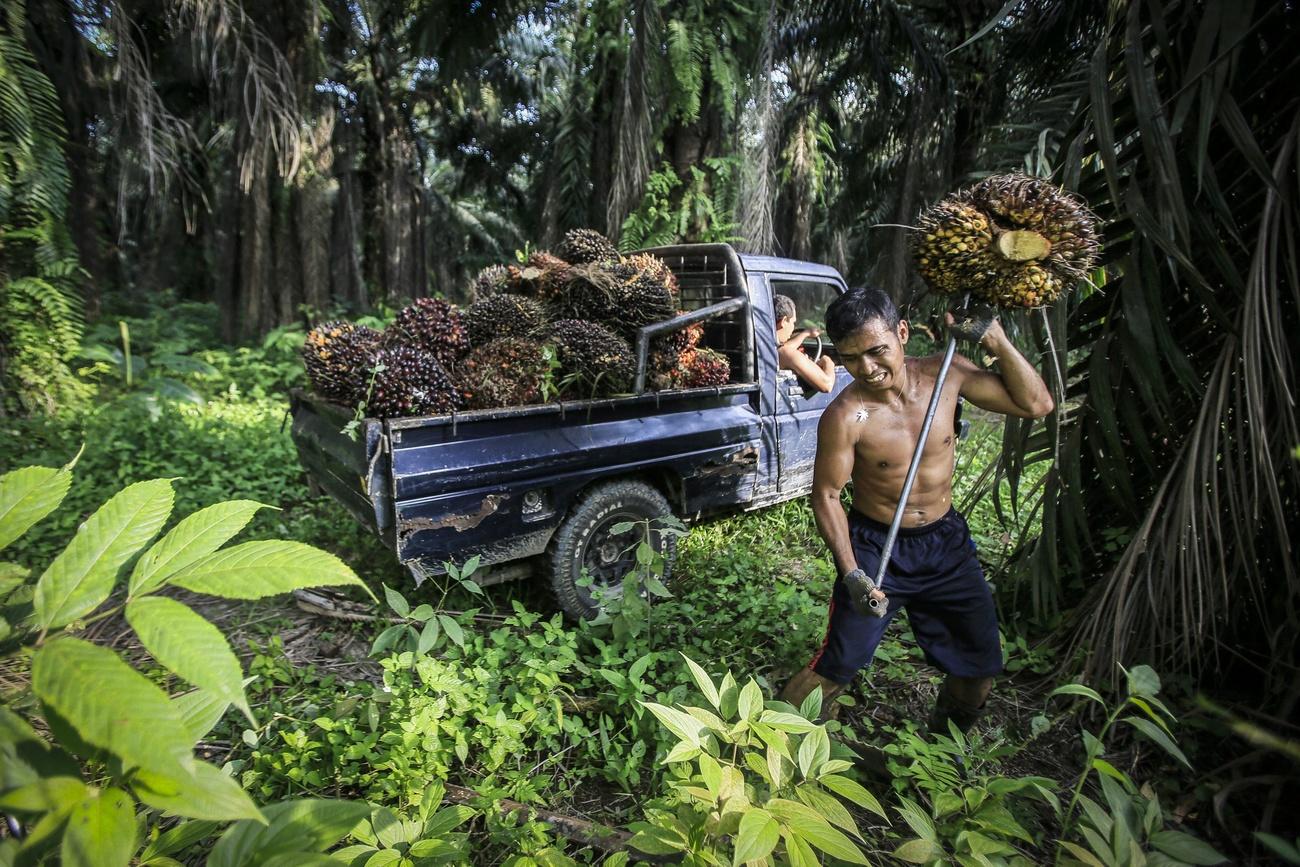
Scientists discover climate neutral palm oil method

Swiss researchers have found a method of cultivating palm oil that has no negative impact on the climate or biodiversity. They recommend creating palm oil plantations on disused pasture land as an alternative to clearing forests.
The team from Lausanne’s Federal Institute of Technology (EPFL) and the Swiss Federal Institute for Forest, Snow and Landscape Research (WSL) analysed soil at plantations in Colombia, which is the world’s fourth largest palm oil producing country. They found that planting on pasture land is a much more sustainable way of harvesting the oil that is widely used in food and cosmetics products.
Because the trees producing palm oil are cut down and replaced every 25 to 30 years, researchers analysed several layers of soil that showed the long-term effects of plantations.
They found that the amount of carbon stored in the ecosystem remains unchanged compared to levels when the area was pasture land.
The researchers believe this may point to an alternative way of harvesting palm oil that does not destroy forests and result in more CO2External link being pumped into the atmosphere.
“The problem lies with the negative carbon impact and loss of biodiversity caused by deforestation. But the main palm oil producing countries have large abandoned pastures that could be converted favorably, thus limiting the massive carbon loss resulting from deforestation,” says study co-author Alexandre ButtlerExternal link.
This study was part of the Oil Palm Adaptive Landscapes (OPAL)External link project, which involves the WWF and academics from Switzerland, Colombia, Indonesia and Cameroon.

In compliance with the JTI standards
More: SWI swissinfo.ch certified by the Journalism Trust Initiative






























You can find an overview of ongoing debates with our journalists here . Please join us!
If you want to start a conversation about a topic raised in this article or want to report factual errors, email us at english@swissinfo.ch.